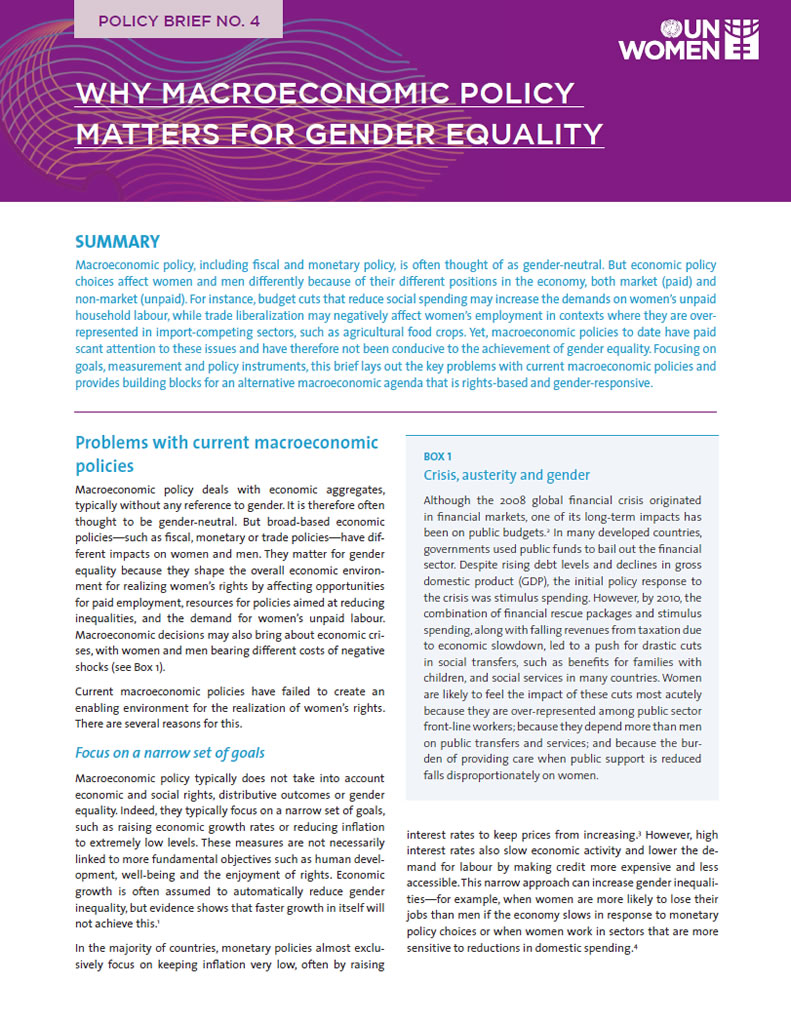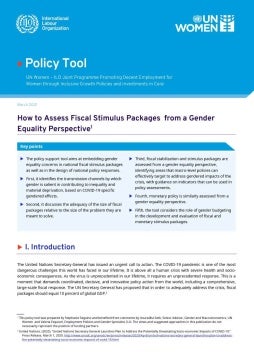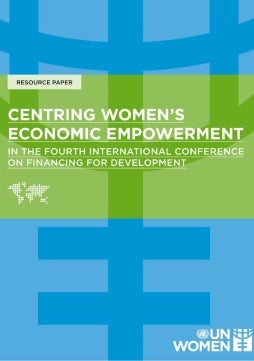Why macroeconomic policy matters for gender equality
This brief synthesizes research findings, analysis and policy recommendations on creating an alternative gender-responsive macroeconomic agenda.
Macroeconomic policy, including fiscal and monetary policy, is often thought of as gender-neutral. But economic policy choices affect women and men differently because of their different positions in the economy, both market (paid) and non-market (unpaid). For instance, budget cuts that reduce social spending may increase the demands on women’s unpaid household labour, while trade liberalization may negatively affect women’s employment in contexts where they are overrepresented in import-competing sectors, such as agricultural food crops. Yet, macroeconomic policies to date have paid scant attention to these issues and have therefore not been conducive to the achievement of gender equality.
Focusing on goals, measurement and policy instruments, this brief lays out the key problems with current macroeconomic policies and provides building blocks for an alternative macroeconomic agenda that is rights-based and gender-responsive.
This brief draws on key findings of UN Women’s flagship report Progress of the World’s Women 2015–2016.










